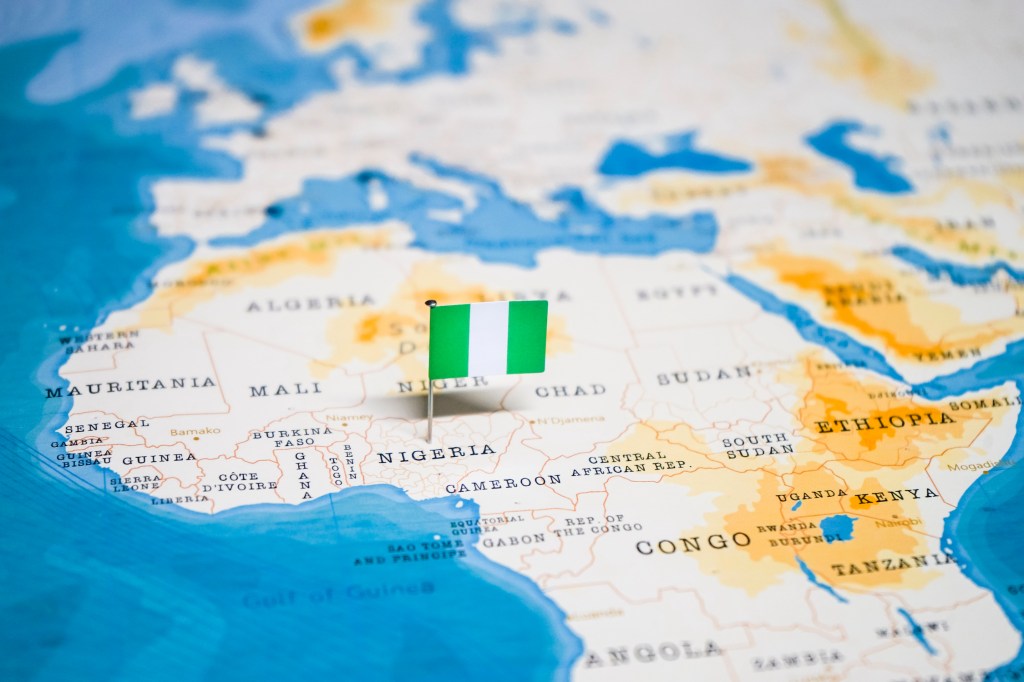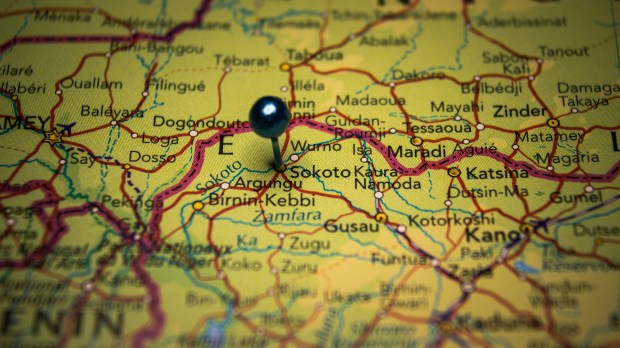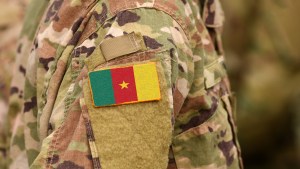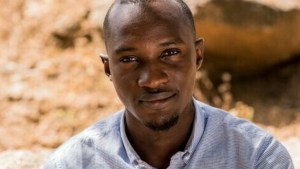A recent spate of killings, kidnappings, and destruction of church facilities in Nigeria is a continuation of a situation Nigerians have had to deal with for many years. For one American observer who works in Nigeria, solutions to the problem are “generations away.” But a necessary first step toward peace will take place next month, when a new president will be elected.
On Thursday, at least 11 people, most of them Catholics, were killed when alleged Fulani herdsmen attacked a village near a refugee camp in the Diocese of Makurdi, southeast of the capital, Abuja.
The news came just days after a priest, Fr. Isaac Achi, was killed in his parish residence in the north central state of Niger on Sunday, January 15. Fr. Achi’s assistant pastor was shot and wounded by bandits.
Also on January 15, 25 churchgoers were abducted in Katsina state in the northwest. The evening before, a parish priest in the southwestern state of Ekiti was kidnapped.
“It’s a continuation of a situation that’s been going on for years,” said Stephen M. Rasche, visiting scholar at the Kukah Center in Abuja, Nigeria, a center for peace and justice, managed by Bishop Matthew Hassan Kukah of Sokoto.
Rasche, who has 35 years of experience in international business and humanitarian aid projects in the Middle East, Africa, Asia, and Latin America, said that although the killing and kidnapping of Catholics, especially priests and other faith leaders, get a lot of attention, persecution of Christians is far more widespread.
“Many of the victims go unreported – all sorts of different types of Christians who are living in rural areas,” Rasche said in an interview. “And these people being attacked are just as much Protestants, whether they’re evangelicals or Lutherans or Church of the Brethren. It’s happening to all of them.”
The World Index of Christian Persecution cites Nigeria as the first in terms of violence against Chritians. It is estimated that 89% of Christians killed throughout the world are located in Nigeria. More than 7,600 Nigerian Christians were reportedly murdered between January 2021 and June 2022.
Ordinary Muslims who have not been indoctrinated into more radical ideologies also have suffered the brunt of the violence.
Nigeria is 53.5% Muslim, 10.6% Roman Catholic, and 35.3% other Christian, according to the CIA World Factbook. The U.S. State Department warns travelers to reconsider visiting the country because of frequent crime, civil unrest, kidnappng and terrorism. But some areas are less safe than others.
According to the Economist, almost 40% of Nigerians were living on less than $1.90 a day in 2019 — and that was before Covid-19 hit.

The security situation in Borno, Yobe, Kogi, and Northern Adamawa states is “fluid and unpredictable due to widespread terrorist activity, inter-communal violence, and kidnapping,” the US State Department warns. “Security operations to counter these threats may occur without warning. Terrorist groups based in the Northeast routinely target humanitarian camps, security forces, churches, schools, mosques, government installations, educational institutions, entertainment venues, and road travelers. Approximately 2 million Nigerians have been displaced as a result of the violence in Northeast Nigeria.”
“Violent crime – such as armed robbery, assault, carjacking, kidnapping, hostage taking, banditry, and rape – is common throughout the country. Kidnappings for ransom occur frequently,” the State Department adds.
Aside from crime, Islamic fundamentalism is a big part of the problem, aided by a culture of impunity and a government unwilling to pursue justice, according to Rasche and others Aleteia spoke with.
Solutions to the problems are “all generations away,” said Rasche. But “the most important starting point will be fair and honest elections of a president who will bring the country back in order. I think this is what everybody is looking for now, to see if they can elect a candidate who will bring the country some sense of safety and security.”
Presidential elections will be held in Nigeria on February 25. Muhammadu Buhari, who has served as president since 2015, is term-limited. The vote is a chance for Nigeria to change course on its problems with violence and other issues.
Sharia
Buhari won’t be missed.
“This current situation over these last several years is a result of a culture of impunity that has developed under the current administration of President Buhari,” Rasche said. “I think the entire Catholic Church in Nigeria would give you the same answer. This administration has really gone off the rails in terms of protecting its own people, and one of the primary victims is the Catholic Church and its priests.”
Fr. Gideon Obasogie, former director of communications for the Diocese of Maiduguri, in the north of the country, said that today’s violence has its roots in Islamic radicalism that has crept into Nigeria.
“What we’re seeing today is the result of longtime indoctrination,” Fr. Obasogie said. “Even today we get Islamic leaders who are extremists, who teach their people to be intolerant of the other religions. So a young man who finds himself in a Muslim family sees every other human being as a brother or sister. By the time he grows up in a culture where he’s being told that the man who goes to the church is an enemy; you need to kill him. When he grows up with that mentality, what do you expect?”
He said that world leaders should pressure the Nigerian government to take steps toward curbing the violence. “We can also call for sanctions,” he said. “It’s not just Putin who can be sanctioned.”
Fr. Joe Bature Fidelis, director of the Justice, Development, and Peace Commission in Maiduguri, explained that while some areas of Nigeria have seen a rise in radical Islamic groups such as Boko Haram, Islamic State-West Africa Province, and extremist Fulani herders, other states have adopted Sharia law, putting pressure of Christian citizens.
“For instance, if they say all places that sell alcohol should be closed, … no teaching of religious education, dress code has to be modified according to Sharia law, anyone then that does not comply with that is treated badly,” he said. “They wouldn’t catch a Christian, probably, to take him to the Sharia court and judge him by that law, because there would be some uprising, but they will target such a person and then by violence beat the person up. And once the person is beaten, nothing is done. Nor are the perpetrators brought to justice. The state law turns away the eye.”
Psychological warfare
Meanwhile, extremist groups like Boko Haram continue to target predominantly Christian areas and work to displace Christians from their villages, Fr. Bature said. “You find that systematic approach to impoverishing, displacing, and dispossessing those Christians communities of their land, of their houses,” he said. The heavily armed groups “come in with guns, shoot sporadically, burn down the houses, and people find it difficult to go back. Another strategy is abducting Christian clerics. They ask for heavy ransoms. Sometimes families panic, and they want to pay those ransoms. It’s psychological warfare, to demoralize a lot of Christians.”
Gradually, the Church pulls back on pastoral activity in rural areas where such violence takes place, he said. Priests go there only to celebrate Sunday Mass, for example.
“So have they not succeeded in downsizing Christian activities?” Fr. Bature said. “Have they not succeeded in demoralizing” the Christian population?
“And all we hear from government officials in response is ‘We condemn such acts.’ But who are the people behind the acts? What is the motive? Is it just to make money? They get media attention for two or three days or for a week, and off they go. And the government in place is comfortable, because no one asks them to be accountable. This is a problem.”
Religion or simple criminality?
Religion’s role in the violence is mixed with other motives, though.
“No one denies that the majority of the perpetrators are Muslims and that they put an Islamic fundamentalist cover on these acts,” said Rasche. But it’s valid to ask whether these actors are “criminals who are looking for some type of cover for what they’re doing, which is certainly the case in some parts, or whether they are legitimately motivated by their faith. This is really unclear, and as with much of Nigeria the truth is probably somewhere in between.”
Priests interviewed for this article, though, continue to be hopeful.
Bishop Kukah added that Boko Haram recruits from what he calls “a bulging army of the illiterate urchins” spread across Northern Nigeria – street children known as Almajiri. They are allowed to “run riot and thrive in destroying church facilities based on the fact that they have been told that Christians and their religion are inferior. A culture of impunity has emerged and created the condition for these.”
“As Christians, we are people of hope,” said Fr. Obasogie. “What gives us hope? I bet that if you go to the church where Fr. Achi was killed on Sunday you will see more people there than last Sunday. That gives us hope, as priests.”
Fr. Obasogie is right. A whopping 94% of Nigeria’s adult Catholics report attending Mass at least weekly, the highest rate anywhere in the world.
Clearly, that is contrary to Fr. Bature’s assessment. But Fr. Obasogie said that when churches are destroyed, some communities build bigger ones.
“In my diocese [of Maiduguri], they have bombed more than 500 churches,” Obasogie said. “The bishop has a policy that when they burn a church, we will rebuild it – only that it won’t be built with wooden rafters but with steel. For me, that is a sign of faith, and it’s what keeps us moving. And I bet you that it has become a form of testimony for even the Muslims. They see this and think, ‘They used to have a church, but they have a bigger one now. They used to have one priest. Now they have two.’”
Said Obasogie, “We can’t be diminished. We can’t be silenced, because the source of our mission is divine, and you can’t kill that which is divine.”



